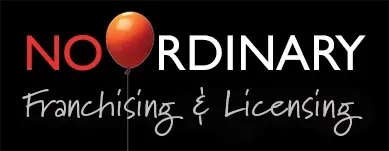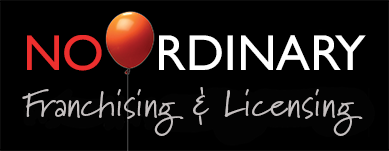We always thought it had to be a man – think Isaac Singer or Ray Kroc – and the “why” had to be money. We were wrong on both counts. Well, maybe.
For a glimpse into franchising's future, take a look into its past
The word “franchise” comes from the French and means, “to free from servitude.” For Martha Matilda Harper, and for the more than 500 women who followed her, the early concept of franchising meant exactly that – “to free from servitude.”
Free from servitude at last
Born into a dirt-poor Canadian family in 1857, Harper was sent away by her father when she was seven to work as a domestic servant. It took her 25 years of “servitude” before she was able to save enough money to start working full-time on an invention she had come up with.
The invention was a special hair tonic she called Mascaro Tonique. So successful was it that Harper was able to achieve her dream of leaving her job and starting her own business – something unheard of for women in those days. Her salon emphasised healthy haircare and featured, among other innovations she developed, the first reclining shampoo chair and sinks with a cut-out for the neck. It was an instant hit with the ladies.
The founder of modern franchising?
Harper then went to work giving other low-income women the opportunity to break the shackles of servitude, both to their jobs and their husbands, through another innovative system that bore more than a passing resemblance to the modern franchising system. At its peak the Harper haircare company had more than 500 franchises and an entire line of hair and skin care products.
Some call Martha Matilda Harper the founder of the modern franchising concept. Others lay that title at the feet of Isaac Singer, who was born four decades before her and built a formidable network of sewing machine salespeople across North America and Europe.
Franchising by any other name
Either way, the idea of giving ordinary people the opportunity to set up their own businesses using a common brand and business model was born.
A TED Talk “The Real Origin of the Franchise” by Sir Harold Evans and an article called “Returning to franchising’s forgotten social roots: An idea whose time came, passed, and may be back again” explores the idea that Martha Matilda Harper was the initiator of “social franchising” – a term that has emerged in recent years to describe franchises with goals that go beyond the purely commercial.
Examples of social franchises listed in the article include:
- The “Avon Ladies” of Living Goods
- Solar Sister’s network of solar lighting franchisees
- UNICEF’s Backpack PLUS initiative
- BRAC’s army of over 100,000 shasthya shebikas providing healthcare products and services to their neighbours in the slums and villages of Dhaka and Sub-Saharan Africa
“Since a renewed energy around using franchising for global development emerged a few years ago, researchers and implementers have fixated on important questions like whether franchises really are increasing access to key services like healthcare to the poorest and most vulnerable,” says the article.
Are franchises really increasing opportunity for the poor and vulnerable?
The jury may still be out on that particular question but the International Franchise Association has recently stepped into the social franchising arena with the creation of a Social Sector Task Force and the launch of a new mentoring programme aimed at providing “meaningful and needed advisory assistance to the devoted efforts of social sector franchisors and franchisees to expand their reach and enhance the quality of their services.”
Are we seeing, as the article claims, the return of franchising to its social-purpose roots?
My name is Robin La Pere of No Ordinary Consultants and as a franchise consultant, I find the history of franchising fascinating, partly because of the industry's social roots. In particular, I believe the inspirational story of Martha Matilda Harper should be shared more widely.
If you have a vision of franchising your business, or sharing your existing franchise with a wider audience, contact me
for a free Initial Consultation.
Relevant Articles
A major strength of franchising is that it’s based on tried and true business models. Trouble is, in this fast-changing business environment, what’s tried and true one year may be tired or irrelevant the next.
Not surprisingly, one out of three franchisors is concerned about the viability of their business model.
The 'Business Model Canvas' has emerged as a powerful tool for developing and updating business models. Recognising that franchise businesses differ in several ways from other business types, I have come up with a new version of the Business Model Canvas designed specifically for franchises.
Send me your email and I'll email you my e-book The Business Model Canvas for Franchisors:




